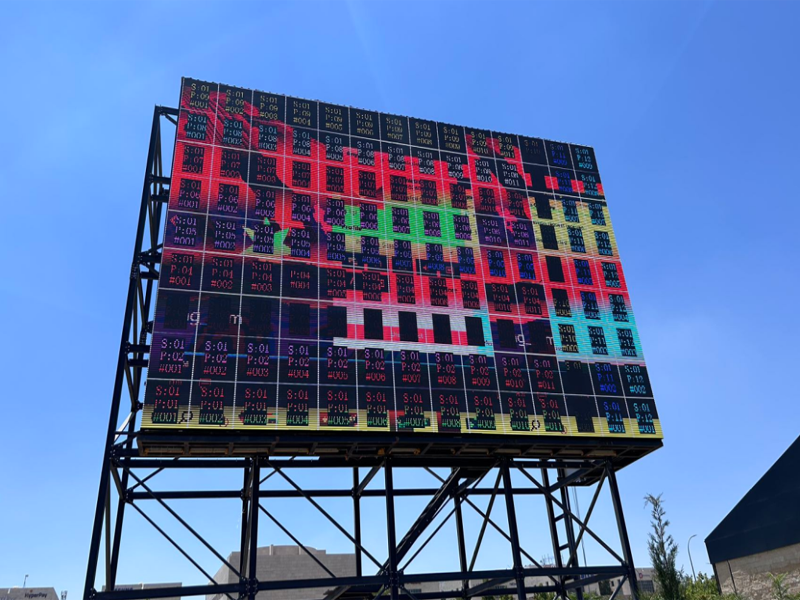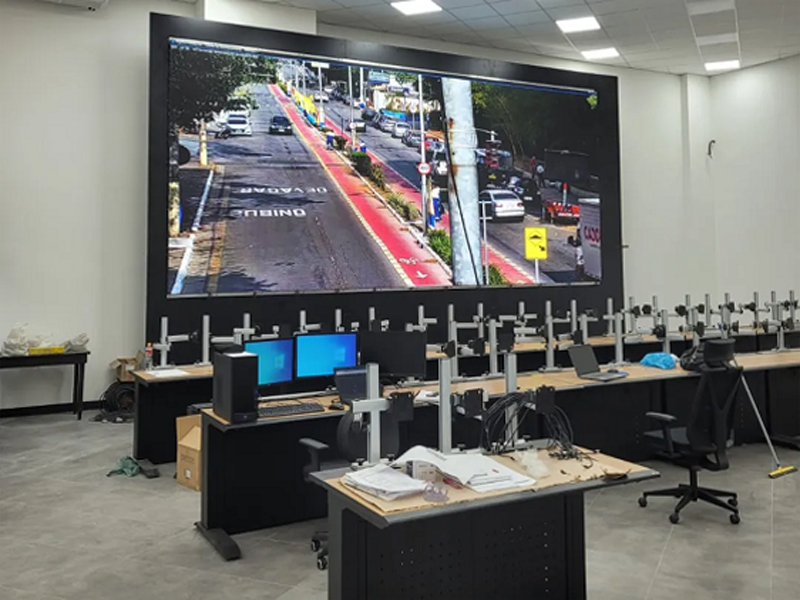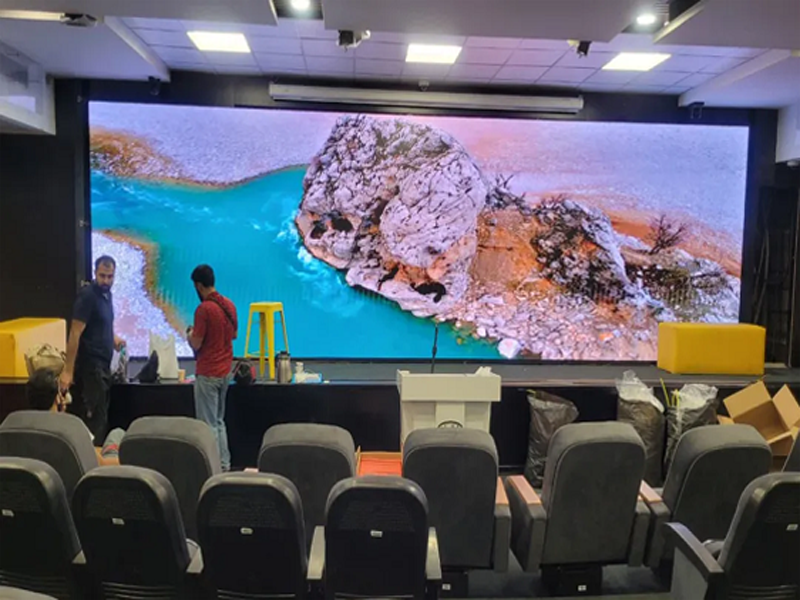In the past, all the LED displays we were familiar with were rigid. It seemed impossible to combine the word “soft” with electronic displays, but the emergence of flexible LED screens broke this perception. Unlike traditional LED displays that use rigid PCB boards such as glass fiber materials, LED flexible screens use flexible FPC circuit boards, and use rubber materials to make masks and bottom shells, and cooperate with a series of special designs such as special locks and link devices, to ensure the degree of flexibility of the LED display to complete the bending shape that other ordinary screens cannot achieve.

Advantages of LED flexible screens
In addition, in the past, the traditional LED display screen was fixed with screws and frames, and other large-scale installation methods, while the installation method of the LED flexible screen is as simple as sticking a piece of paper on the wall. Due to its very light weight, LED flexible screens are mostly installed by magnet adsorption and pasting methods, which simplifies the installation and disassembly process, allowing customers to easily complete the installation work by themselves, which greatly reduces the burden of use.

Such characteristics make it easier to use LED flexible screens when facing some irregular and special positions such as curved walls and columns, which are difficult for traditional LED displays to fit perfectly. If the usual LED display is to be installed on a curved wall, there are generally three methods: make the cabinet into a vertical strip and install it spliced; make the cabinet into a curved one and then splice it; make a special unit, and the screen steel structure also needs to be made into a curved shape. These three methods are undoubtedly very troublesome in production and installation, while LED flexible screens are more convenient in comparison. In view of the above characteristics.
樂威壯
8 aligncenter” src=”https://www.userledscreen.com/wp-content/uploads/2024/03/203.webp” alt=”” width=”783″ height=”481″ />
Common application scenarios
The common application fields of LED flexible screens are also places with special shapes, such as shopping mall columns, bars, stages and so on.
In addition to the above, flexible LED screens have more advantages such as single-point maintenance, seamless splicing, and high efficiency and energy saving, which are not available in traditional LED displays.
Although the current LED flexible screen is still not perfect, we have reason to believe that with the development and improvement of technology and technology, the technical problems of LED flexible screen will be overcome, and the market “blue ocean” of LED flexible screen will become very impressive.












